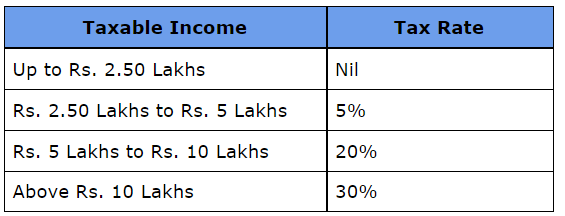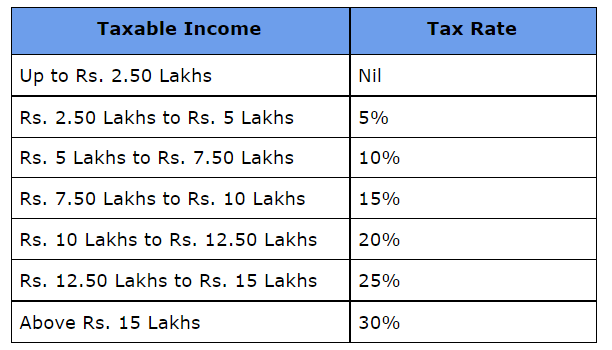There are a lot many questions in the mind of first-time NRIs. Once you get to know that you are being transferred to some International location or you yourself decide to move abroad, it is always wise to have a basic understanding of a few rules, so you always find yourself on the right side of the law.
Recently, I wrote an article on 10 important things to do before you become an NRI, and after reading the same, one of our readers wanted us to elaborate on the important rules for Income tax for NRI in India.
And here I am trying my hands on the same.
Before I move forward, please go through the Definition of NRI as per the Income-tax Act and FEMA in this detailed post.
Income tax rules for NRIs and Resident Indians are not that different, especially on the Income earned in India.
If you are an NRI and have earnings in India, which could be Rental, Interest, Pension, capital gains, etc. you need to pay taxes and file income tax returns in India too as per the Indian Income Tax rules for NRI. It is Important to file ITR when you want to claim refunds. (Also Read: Why is it important to file ITR on time?)
For NRIs, the income earned or accrued in India or the income earned through a source in India is taxable in India.
Whereas, if you are a Resident Indian, you need to pay tax on your global income too in India.
It has been happening in recent times that many NRIs, who have been doing Work from Home for the past 1-year plus, became resident Indian as per Income tax rules, they are supposed to pay taxes on their salary Income earned abroad.
However, do note that if there is any tax deduction in the country where you have earned and received the money, you may take the benefit of the provisions of the Double Tax Avoidance Agreement (DTAA) between the countries, to avoid paying double taxes. Read More on DTAA in this article.
Let us see the rules for Income tax for NRI in India 2022-23 from various sources in India.
Income Tax for NRI in India Rules 2022-23
NRI Income Tax Rules: Income from Salary
Your income from salary is taxable in India under the following two circumstances:
- If received in India: If you have received the salary in your Indian Bank Account or someone else has received it on your behalf, it would be taxable in India.
- If earned in India: If you have received your salary in lieu of the services rendered in India, it would be taxable in India no matter whether you receive it in India or abroad.
NRI Income Tax Rules: Rent from House Property
If you have a house property in India and receive rental income from the same, it would be taxable. The taxable income would be calculated in a similar manner as applicable to a resident Indian. (Read: How to calculate Income from House Property?)
NRIs, as well as residents, are allowed the following deductions from the rental income:
- Standard deduction @ 30%
- Municipal and property taxes, paid
- Interest deduction on home loan u/s 24b
- Principal repayment of home loan upto Rs. 1.50 Lakhs, u/s 80C.
Your tenant must credit the rent in your NRO account and deduct a 30% TDS on the rent before making the payment.
NRI Income Tax Rules: Income from Capital Gains on Real Estate
If you have sold any property in India then you are liable to pay taxes on the gains. The rules for income tax for NRI in India with respect to capital gains on real estate are the same as that of Indian residents.
You are also allowed the exemptions u/s 54, and 54F by buying another house property 1 year before or within 2 years of selling the property or by constructing a house property within 3 years. (Read: How to save capital gains on the sale of property in India?)
Alternatively, you can also invest in the capital gain bonds u/s 54EC within 6 months of the date of sale. (Also Read: Are Capital Gain Bonds worth buying?)
However, the only difference is that long-term capital gains on real estate for NRIs are subject to a TDS of 20% and short-term gains are subject to a TDS of 30%.
Capital Gains on Financial Assets:
If you have booked any gains on investments in equity shares or mutual funds in India, these would be taxable. (Also Read: A complete guide on mutual funds for NRIs)
In Listed Equity Shares and Equity Mutual funds, gains booked after 12 months of holding period are considered as Long term Capital Gains, which beyond Rs.1 Lakh would be taxed at 10%, without indexation.
If sold within 12 months, the gains would be treated as short-term and taxed at 15%.
Gains on listed non-equity funds, if sold after a period of 36 months, would be treated as long-term and taxed at 20% with indexation, and non-listed funds at 10% without indexation.
If sold within 36 months, the gains would be treated as short-term and taxed as per the income tax slabs applicable. (Read: Taxation of Mutual Funds in India)
As per the rules for Income Tax for NRI in India, you can take the benefit of indexation only on listed non-equity instruments, not on the unlisted funds. Please note that all open-ended non-equity Mutual funds are Unlisted in nature.
However, the TDS applicable on the short-term capital gains on non-equity funds would be 30%. (Also Read: TDS rates on NRI investments)
Also Check- Best investment options for NRIs in India and important rules
NRI Income Tax Rules: Income from Other Sources
Interest:
The interest on NRO Accounts and Fixed Deposits is taxable if exceeds Rs.10,000 in a financial year. The interest income on the NRE and FCNR deposits is fully tax-free. (Also Read: All about NRI Bank Accounts)
Dividend:
If you receive any dividend from any Indian company or mutual funds exceeding Rs. 5,000 in a financial year, it would be taxed at 20%.
However, this rate can be even lower if the provisions of DTAA are available. This is due to the fact that the tax treaties with most of the countries limit the taxation on dividends between 5% to 15%.
Gifts:
Gifts received from relatives as defined in the income tax act are exempt from taxes. Gifts received from non-relatives beyond Rs. 50,000 in a financial year are fully taxable. However, gifts received on the occasion of marriage are fully tax-exempt. (Read: How Gift tax rules in India work?)
Income from Salary, House Property, and Other Sources in India would be added to the total income and taxed as per the income tax slab rates applicable.
NRI Income Tax Slabs:
The tax slabs applicable to NRIs are as below. These slabs are applicable to all NRIs, irrespective of their age. In other words, unlike resident Indians, even if you are a senior citizen NRI, the basic exempt income is Rs. 2.50 Lakhs only.
Old Tax Regime:

New Tax Regime:

(Also Read: Old or New Income Tax Slabs- Which one should you choose?)
Rebate u/s 87A is not available for NRIs. It means that even if your income in India is below Rs. 5 Lakhs, you need to pay the taxes, as applicable.
In addition, a cess of 4% on the taxes is also applicable. And, if your income is above Rs. 50 Lakhs, a surcharge will also be applicable on the total tax payable.
Please note that, the basic exemption limit of Rs. 2.50 Lakhs is not available if your total income consists of short & long-term capital gains only.
Conclusion:
Taxes are a very vast subject and they may change every year, so you need to be abreast with the laws and regulations, to always stay on the right side.
Some above-written rules for income tax for NRI in India are quite basic to start with. If you are running a Business or some multicountry exposure of investments and income, then it is wise to have an International tax expert by your side.
Even for Indian Tax rules, having a Chartered Accountant for tax-related matters may help over the long term.
This Article is written by Mr. Varun Baid, CFP Professional





